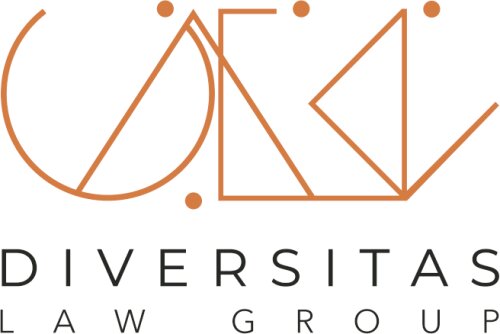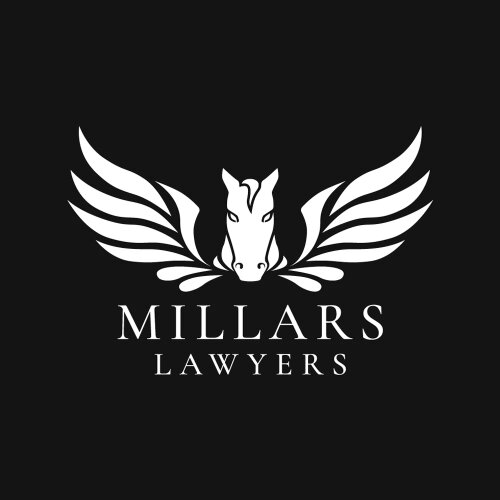Best Landlord & Tenant Lawyers in London
Share your needs with us, get contacted by law firms.
Free. Takes 2 min.
Free Guide to Hiring a Real Estate Lawyer
List of the best lawyers in London, Canada
About Landlord & Tenant Law in London, Canada
Landlord & Tenant law in London, Canada governs the legal rights and responsibilities of both landlords and tenants in rental agreements. It covers aspects such as lease agreements, rent payments, maintenance responsibilities, eviction procedures, and more.
Why You May Need a Lawyer
You may need a lawyer for Landlord & Tenant issues in London, Canada if you are facing disputes with your landlord or tenant, need to negotiate or review a lease agreement, have questions about your rights and responsibilities, or are facing eviction or lease termination.
Local Laws Overview
Some key aspects of Landlord & Tenant laws in London, Canada include regulations on rent increases, security deposits, maintenance requirements, eviction procedures, and the rights of landlords and tenants in various situations. It is essential to familiarize yourself with these laws to protect your rights.
Frequently Asked Questions
1. Can a landlord increase my rent at any time?
No, landlords in London, Canada can only increase rent once every 12 months with proper notice and within the limits set by the Residential Tenancies Act.
2. What can I do if my landlord refuses to make necessary repairs?
You can file a maintenance complaint with the Landlord and Tenant Board and seek legal assistance to enforce your rights.
3. How much notice does a landlord have to give before evicting a tenant?
The notice period for eviction in London, Canada depends on the reason for eviction, ranging from 24 hours to 60 days.
4. Can a landlord enter my rental unit without permission?
Landlords are required to provide proper notice before entering a rental unit, except in emergencies.
5. Can a tenant withhold rent for maintenance issues?
Tenants in London, Canada can file a maintenance complaint with the Landlord and Tenant Board and may be able to withhold rent in certain situations until the issue is resolved.
6. What are my rights as a tenant regarding lease renewal?
Tenants have the right to renew their lease agreement unless the landlord has a valid reason for not renewing, as outlined in the Residential Tenancies Act.
7. Can a landlord evict a tenant without proper grounds?
No, landlords must have valid reasons, such as non-payment of rent or breaching the lease agreement, to evict a tenant in London, Canada.
8. How can I terminate my lease early?
You may be able to terminate your lease early by mutual agreement with your landlord, subletting the unit, or assigning the lease to someone else, depending on the terms of your lease agreement.
9. Can a landlord refuse to return my security deposit?
Landlords in London, Canada must return a tenant's security deposit within a specified time frame after the tenancy ends, minus any deductions for damages or unpaid rent.
10. What should I do if I receive an eviction notice?
If you receive an eviction notice, seek legal advice immediately to understand your rights and options, and respond within the specified time frame to avoid eviction.
Additional Resources
For further information and assistance with Landlord & Tenant issues in London, Canada, you can contact the Landlord and Tenant Board, Legal Aid Ontario, or local tenant advocacy organizations.
Next Steps
If you require legal assistance with Landlord & Tenant matters in London, Canada, consider consulting a qualified lawyer who specializes in this area of law. They can provide you with expert advice and representation to protect your rights and resolve any disputes effectively.
Lawzana helps you find the best lawyers and law firms in London through a curated and pre-screened list of qualified legal professionals. Our platform offers rankings and detailed profiles of attorneys and law firms, allowing you to compare based on practice areas, including Landlord & Tenant, experience, and client feedback.
Each profile includes a description of the firm's areas of practice, client reviews, team members and partners, year of establishment, spoken languages, office locations, contact information, social media presence, and any published articles or resources. Most firms on our platform speak English and are experienced in both local and international legal matters.
Get a quote from top-rated law firms in London, Canada — quickly, securely, and without unnecessary hassle.
Disclaimer:
The information provided on this page is for general informational purposes only and does not constitute legal advice. While we strive to ensure the accuracy and relevance of the content, legal information may change over time, and interpretations of the law can vary. You should always consult with a qualified legal professional for advice specific to your situation.
We disclaim all liability for actions taken or not taken based on the content of this page. If you believe any information is incorrect or outdated, please contact us, and we will review and update it where appropriate.












